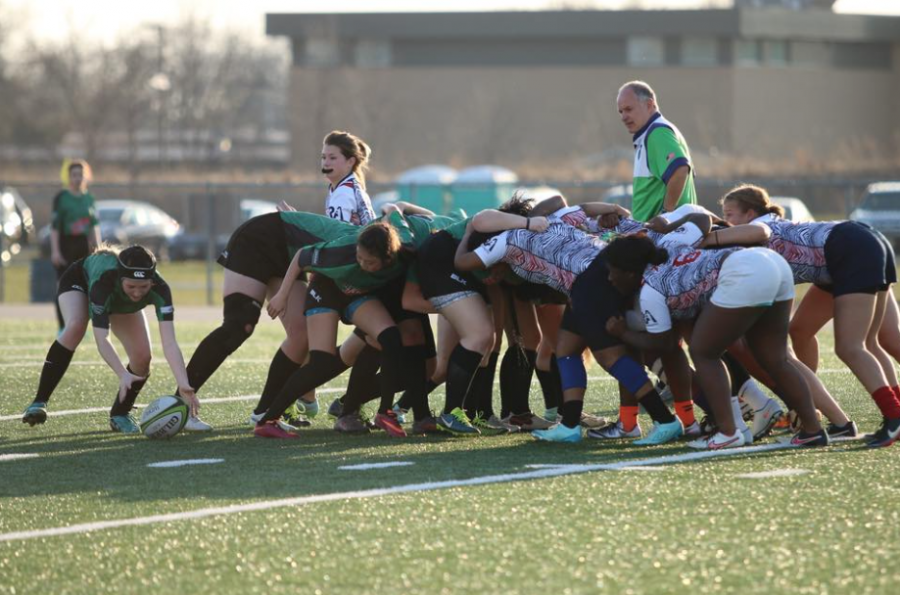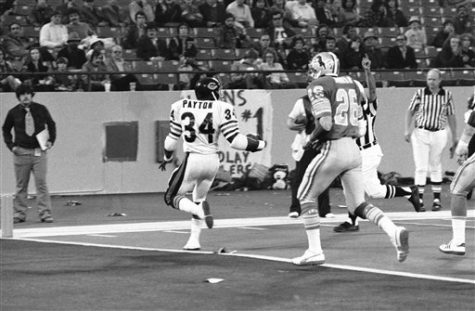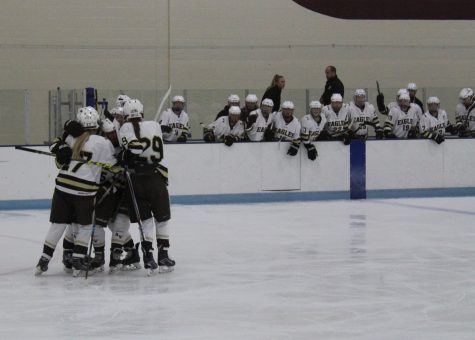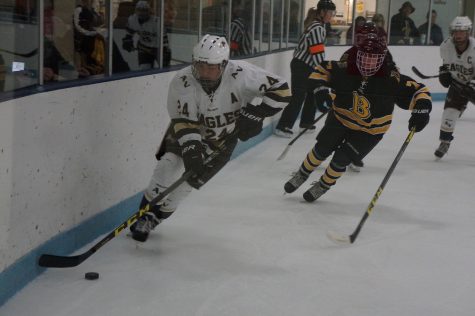Rugby in America? I Think Yes!
Megan Navratil, played for Eagan Sentinels rugby club, retrieving the ball from a scrum
Football is arguably one of the biggest traditions for Americans worldwide…but not many know that the game they love so much sprouted from rugby. Compared to football, rugby has a reputation of being a violent sport because of the lack of protection (save for a mouth guard). No pads are allowed with the exception of a scrum cap–a thin, slightly cushioned cap–to prevent concussions and cauliflower ear.
Other big differences between the sports are that there is little to no stoppage time, the ball is passed backwards instead of forwards, and–although the ball resembles a football–it is more rounded on the ends.
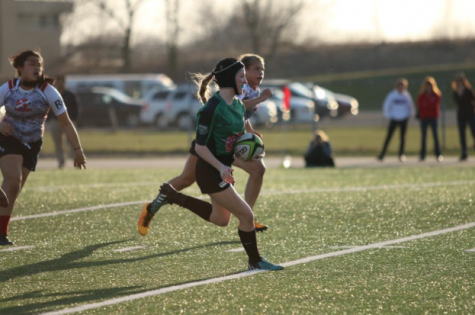
Megan Navratil, Eagan Sentinels player, playing against Armstrong
A common misconception of rugby is that it is ‘too dangerous’. Although ‘every rugby match has the equivalent impact on the human body of surviving a 50-mph car crash’–according to Bleacher Report–if every player plays with the right technique, not many injuries happen.
Martin Johnson, a former rugby player who also played in the NFL, thinks rugby is safer than football from his personal experience: “The first thing you learn in rugby is head protection: getting your head to the near side and then wrapping the arms.” By learning that technique, players are less likely to get hurt.
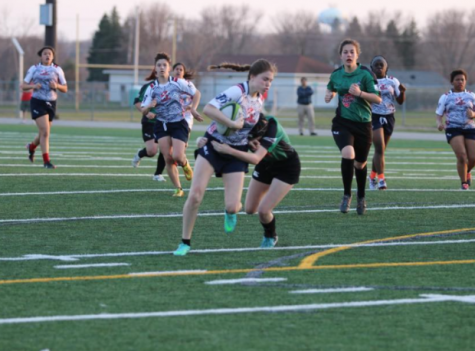
Megan Navratil, player for Eagan Sentinels Rugby club tackling an Armstrong player
One thing that differentiates rugby from other sports is its sportsmanship. “In rugby sportsmanship is everything,” states San Clemente Rugby. After a match it’s tradition for the home team to host a meal for both them and the away team to give a time and place for teams to bond, build a strong community, and to respect each other on and off of the pitch (or “field”).
The game, “ranked the second most popular sport worldwide” by The Atlantic, has been around for centuries in countries like New Zealand, South Africa, England and Ireland, but it’s only just gotten started in the U.S. in the last decade or so. Why, you might ask?
Well, many rugby critics bring up several reasons: it’s too dangerous; the strategies of the game are different and sometimes confusing; and the respect players have for another–as in no fights or controversy on the field–make Americans prefer sports like football or hockey. Despite it being “America’s fastest growing sport,” according to The Spectrum, American rugby still has a long ways to go if it’s going to catch up to countries like New Zealand or England.
The 2014 New Zealand All Blacks vs U.S.A Eagles helped expand the knowledge of rugby in America, with approximately 927,000 people watching, as well as 61,500 people attending at Soldier Field in Chicago.
The New Zealand All Blacks, reigning world champions, are most famous for their traditions on the pitch. They perform a traditional ancestral war cry called the Haka that “displays a tribe’s pride, strength and unity,” states the official All Blacks website, as well as intimidates the opposing team. The Haka consists of “violent foot-stamping, tongue protrusions and rhythmic body slapping to accompany a loud chant.”
The New Zealand All Blacks performing the Haka in the 2015 Rugby World Cup
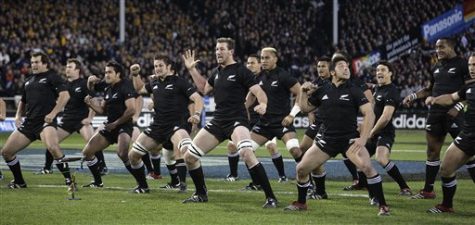
The New Zealand All Blacks perform the haka against Australia in the Bledisloe Cup/Tri Nations rugby test at Eden Park, Auckland, New Zealand, Saturday, Aug. 19, 2006. (AP Photo/NZPA, Pool)
Rugby gained most of its popularity in America through college clubs. There are “900 college teams and over 32,000 college players — male and female — registered with USA Rugby.” This makes “college rugby the largest section of USA Rugby’s membership,” according to the official USA Rugby website.
Compared to college, high school has some catching up to do, with only about “67,000 high school students registered with USA Rugby.” Funding is a big part of why this number is low, since most schools won’t accept rugby as a school sport because it’s ‘too dangerous’. However, there are around 2,588 clubs spread out across America and that number is only increasing.
Krista Michelle, coach of the local girls high school rugby team the Eagan Sentinels, believes that “what really sets rugby apart from other sports is the culture and the bond the teams make with each other,” along with its welcoming environment, being “a sport that needs all kinds of body types, skill sets, and abilities”. Rugby has “opened up a whole set of new experiences” for Krista like “job opportunities and chances to travel the world.”
Although rugby comes with aggressiveness and intensity, it also requires a great deal of respect between the players and throughout the community. Oscar Wilde said it best: “Rugby is a game for barbarians played by gentlemen.”



